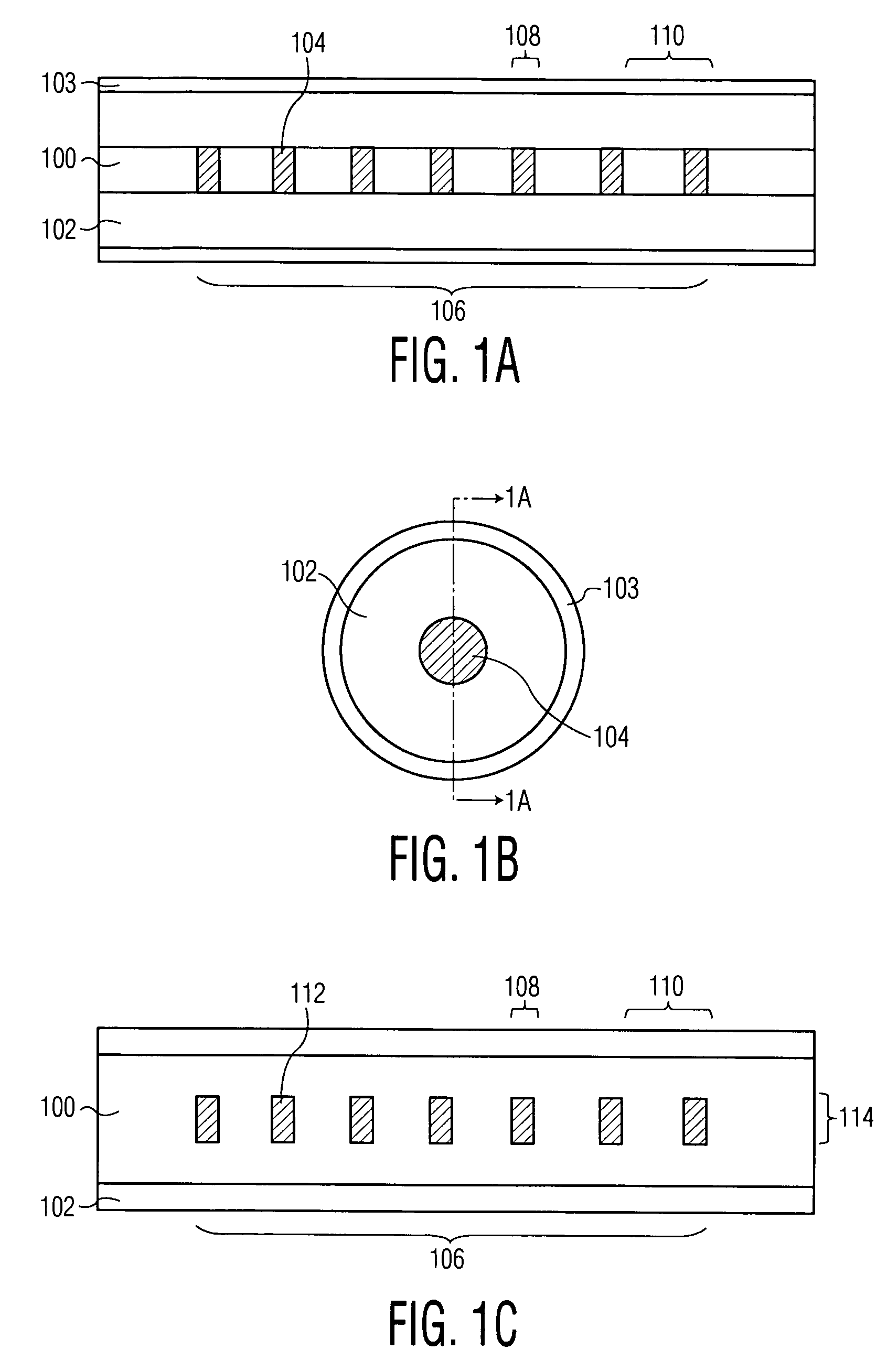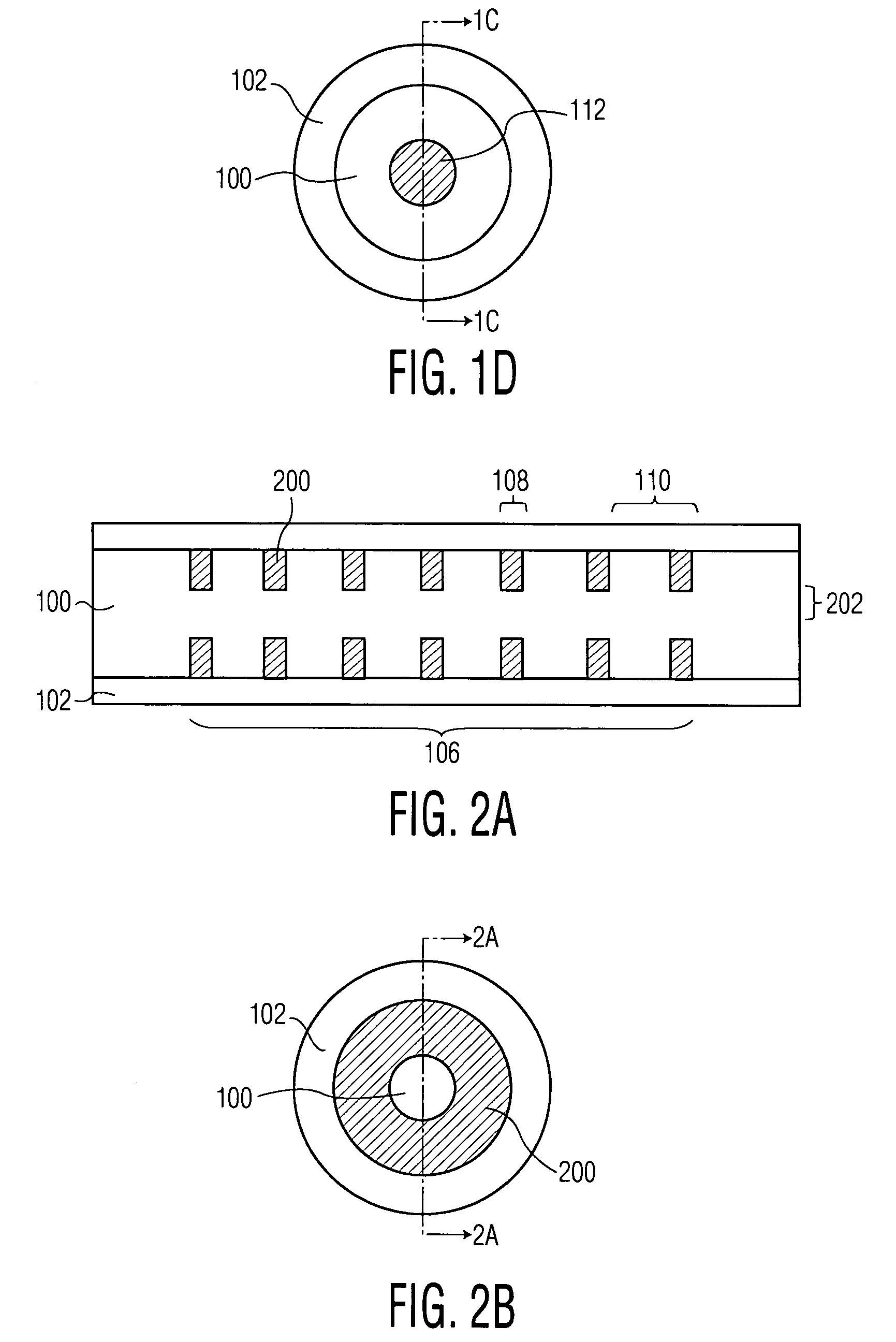Multicore optical fiber with integral diffractive elements machined by ultrafast laser direct writing
a multi-core optical fiber and diffractive element technology, applied in the direction of optical elements, cladded optical fibres, instruments, etc., can solve the problems of undesirable non-linearity, the requirement that the optical fiber have a photosensitive core, and the inability to achieve the desired
- Summary
- Abstract
- Description
- Claims
- Application Information
AI Technical Summary
Benefits of technology
Problems solved by technology
Method used
Image
Examples
Embodiment Construction
[0049]The extremely high intensities achievable in ultrafast laser machining of materials allow the material to be changed in a number of ways. The most common way that a material may be changed during ultrafast laser machining is for the material to be removed from the surface via ablation. Alternatively, various properties of the material may be changed such as the crystallinity and / or the refractive index. These material changes may occur on the surface of the material or, for substantially transparent materials, the ultrafast pulses may be focused within the material to cause these changes to take place inside of the bulk of the material. These internal changes may occur only above a specific fluence, so that the intervening material may be unaffected by the ultrafast laser pulses. Careful control of the pulse energy, pulse duration, and focus of the pulses may allow for the creation of precise regions with changed properties that have sharp boundaries.
[0050]Thus, the use of ult...
PUM
 Login to View More
Login to View More Abstract
Description
Claims
Application Information
 Login to View More
Login to View More - R&D
- Intellectual Property
- Life Sciences
- Materials
- Tech Scout
- Unparalleled Data Quality
- Higher Quality Content
- 60% Fewer Hallucinations
Browse by: Latest US Patents, China's latest patents, Technical Efficacy Thesaurus, Application Domain, Technology Topic, Popular Technical Reports.
© 2025 PatSnap. All rights reserved.Legal|Privacy policy|Modern Slavery Act Transparency Statement|Sitemap|About US| Contact US: help@patsnap.com



